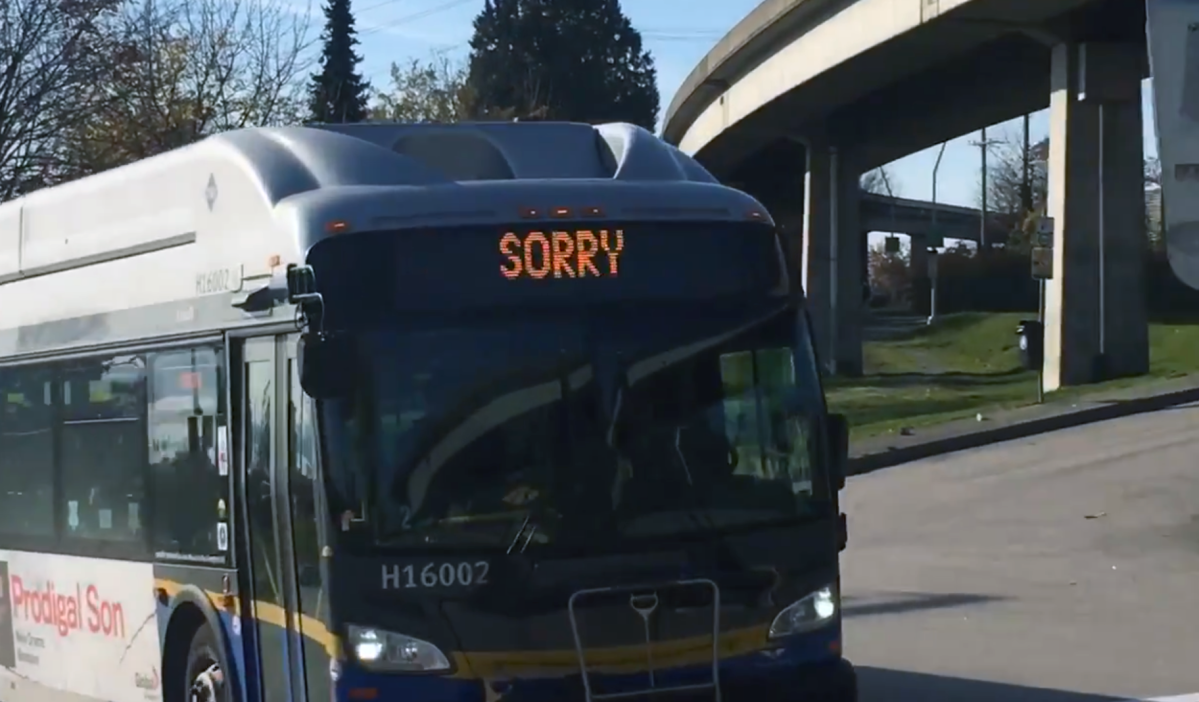Metro Vancouver’s regional transit and transportation system says it’s facing a $4.7 billion funding shortfall over the next decade, and without help it could be forced to cut service by as much as 60 per cent.

The financial update was presented in a report to the TransLink Mayors’ Council on Wednesday, and warns of dire consequences as transit ridership surges and commuters face increasing congestion.

TransLink CEO Kevin Quinn said the region’s system is the fourth busiest rapid rail system and third busiest bus system in North America, and has seen post-pandemic ridership rebound faster than any other major city on the continent.
The region has also seen 60 to 70 per cent more bus overcrowding systemwide than the same time last year, and is worse on every day of the week than it was post pandemic.
But addressing those problems will be a major challenge, he said, with TransLink revenues cratering over the pre-pandemic situation.

Get daily National news
TransLink’s budget is stable through 2025 due to pandemic-related emergency funding from the province and federal government.
Beyond that point, a structural deficit emerges due to rising inflation and projected costs to operate the new Broadway subway and Surrey-Langley SkyTrain expansion. At the same time, TransLink is dealing with falling fuel tax revenue due to the growth of electric and fuel efficient vehicles, along with fare revenue that dropped off amid the pandemic and hasn’t recovered.
“We still face a shortfall of 20 per cent of more between our projected ridership and our actual ridership,” Quinn said.
“This shortfall in anticipated fare revenues coupled with the previously mentioned inflationary measures and declining fuel tax have left us with a structural deficit we must address — financial analysis projects that TransLink will face an annual revenue shortfall of 600 million beginning in 2026.”

That shortfall, which does not take into account any additional scope of TransLink’s 10-year priorities under its Access for Everyone plan, amounts to about 30 per cent of its total annual revenues.
According to the report, $2.8 billion of the shortfall is related to lower fare and fuel tax revenues. Another $1.8 billion comes from higher expenses, including $839 million attributable to inflation and wage growth, $408 million to operate the new SkyTrain expansions and increased debt servicing costs representing about $459 million.
Port Coquitlam Mayor and mayors’ council chair Brad West said the report highlighted the urgent need to address the transit system’s “outdated funding model.”
“There is no more kicking the can down the road,” he said.
“This is a problem that the region and the province have to face squarely head on and fix or else not only are we going to be able to deliver the additional transit we need in every city in Metro Vancouver, we’re going to decline.”

West said the council remained in talks with the provincial government and was sending representatives to Ottawa next month to make its case with the federal government.
In the meantime, he said TransLink was conducting its latest phase of public engagement, in the hopes of building pressure on senior levels of government to support the Access for Everyone 10-year plan.
That plan aims to double bus service across the region and add nine new Bus Rapid Transit Lines, extend the Broadway subway to UBC and construct a gondola to SFU’s Burnaby Mountain campus.








Comments
Want to discuss? Please read our Commenting Policy first.